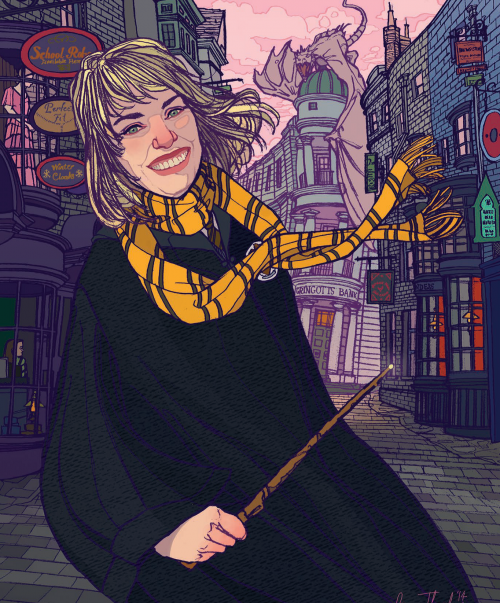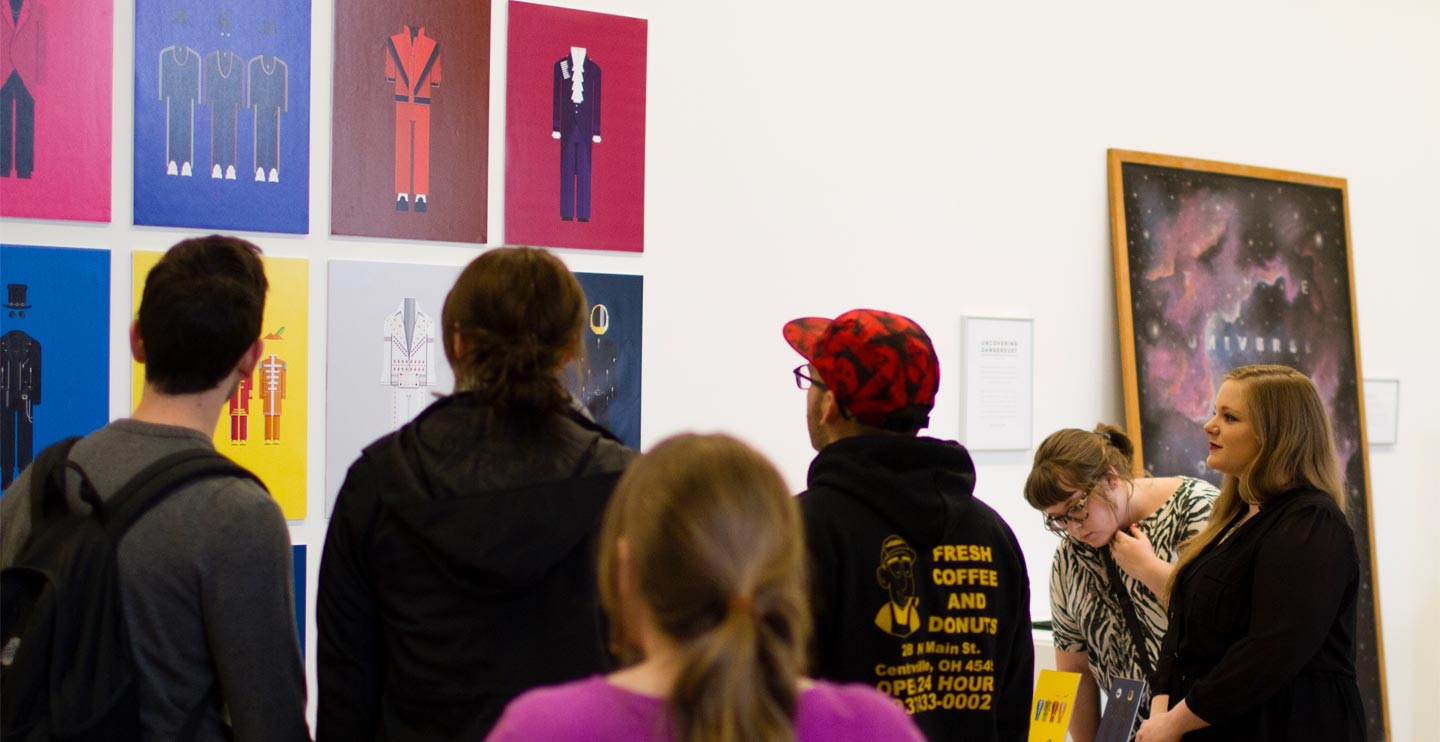
Merritt Andrews was born and raised in the quiet little town of Salisbury, MD. From a very early age, she knew what she wanted to be when she grew up. “An artist,” she says. “Preferably of the non-starving variety.”
That goal led her to intense studies at Ringling College at the cusp of the 1990s. Although illustration was her major, Andrews was caught up in the excitement of the digital dawn. “Computer animation was still in its infancy,” she recalls. “It was a heady time of experimentation and innovation. That sense of possibility spilled over into every major. The new tools opened up doors for every artist—illustrators, included! It really felt like magic.”
And speaking of magic, Andrews interned with Walt Disney Feature Animation Florida after she graduated in 1992. The company hired her full-time six months later. She enjoyed more than 10 productive years working on such beloved animated features as The Lion King, Pocahontas, Mulan, Tarzan, Lilo and Stitch and Brother Bear.
“It was a great time for me,” she says. “Not only because of the work, but because of the people I worked with. I had the privilege of collaborating with some of the best talent in the industry, including my supervisor, Dan Gracey, a Ringling grad. It really was a dream come true!”
Walt Disney Feature Animation Florida closed its doors in March 2004. But Andrews kept the dream alive. In the years that followed, she worked with her fellow Disney alums at Project Firefly Animation Studio, and also at Cecropia, and created a rich network of freelance clients. She ploughed her creative energies into the award-winning TV pilot, Farm Force, monkeyed around with Universal Pictures’ Curious George, and helped get Disney’s The Princess and The Frog hopping. Then, in 2008, Universal Creative invited her to join its core team. She assisted with recruiting artists, creating and editing presentations, and brought imagination to life with the magic of Photoshop. The real magic began when Andrews became creative coordinator of the Diagon Alley project at the Wizarding World of Harry Potter portion of Universal Orlando Resort theme parks.
Universal Orlando Resort had a hit on its hands with its Wizarding World of Harry Potter section based on the films and movies. The theme park planned to build on that success by adding “Diagon Alley,” a beloved hangout from the Harry Potter universe. (We’ll take a stroll through that alley later.)
So, what exactly does a creative coordinator do?
Andrews explains. “For this project, my role was mostly documenting the process and submitting all aspects of the creative elements to Warner Brothers for approval. I took a lot of photos as Diagon Alley took shape and created spreadsheets with every detail included, from all of the different types of doorknobs and escutcheons, to paint color and finishes. I’m also one of those annoying people who can spot spelling errors, so they employed me to review every graphic and sign—whether it was ‘on stage’ or back of house—and correct any grammatical error before it went to fabrication. I got to create several small window signs, design our project team’s construction stickers and badges, assist in digitally painting a mural in one of the shops, worked with MinaLima’s graphics to create the banners inside the Knight Bus, and helped conceptualize one of our wand-activated show elements.”
For those who haven’t read the pages of J.K. Rowling’s Harry Potter series, Diagon Alley is a narrow, cobbled, gas-lit London street. Its shops and pubs cater to an exclusive clientele: wizards, warlocks, witches and their kin. The street is hidden to the magic-impaired. Known as “muggles” in the books and movies—as any fan would know.
And they know a great deal.
True Harry Potter fans could walk that alley blindfolded and tell you every sight, from the Leaky Cauldron pub to Gringotts Wizarding Bank to Ollivanders Wand Shop. Recreating that street’s look and feel was no small task. “If one detail was out of place, the fans would notice,” Andrews says. “We had to get it right.”
It was hard work. She loved every minute of it.
Andrew’s creative team included an extremely talented group of engineers, project managers, show producers, construction workers and other top artists and designers. Their starting point? Rowling’s descriptions and the designs Stuart Craig and Alan Gilmore created for the Harry Potter films. The team took it from there and worked out the granular implications. Andrews notes that, “In a film, you see the street from the outside and have access to a few interiors. In a theme park, guests have to have access to all of it.”
The magic was in the details. Working with the creative team, Andrews helped make sure each element was faithful to Rowling’s vision, and consistent with every other element. At the end, it all came together: Andrews and the other creative artists brought the magic to life.
In July 2014, Diagon Alley welcomed its first batch of muggles. The response? Universal acclaim from critics, theme park insiders and Harry Potter fans alike. Andrews loved the result—and the creative process that made it possible.
“Working with such brilliant artists and seeing a theme park attraction go from the drawing board to fruition was a joy,” she says. “Being able to share it with the world is pretty rewarding. It’s been quite a journey!”
Despite how far she’s traveled, Andrews hasn’t forgotten her first steps.
“Ringling College is where it all began,” she adds. “More than just skills, the college taught me to adapt and got me started on my artistic path. I never would have dreamed where that path would take me.”
Now that Diagon Alley is open for business, Andrews is moving onto another project for Universal Creative. For now, it’s hush-hush. But, whatever it is, it won’t be mundane.
“Making art is a great way to make magic,” she says. “I’m doing what I love, and that’s the best magic of all.”

 Merritt Andrews was born and raised in the quiet little town of Salisbury, MD. From a very early age, she knew what she wanted to be when she grew up. “An artist,” she says. “Preferably of the non-starving variety.”
Merritt Andrews was born and raised in the quiet little town of Salisbury, MD. From a very early age, she knew what she wanted to be when she grew up. “An artist,” she says. “Preferably of the non-starving variety.”